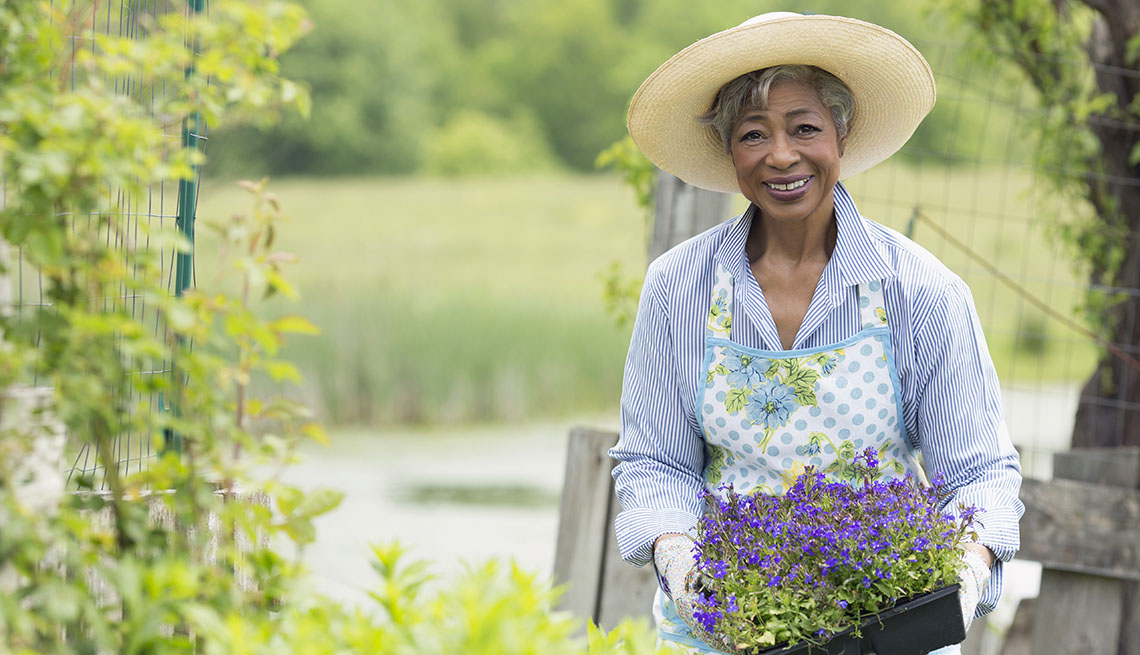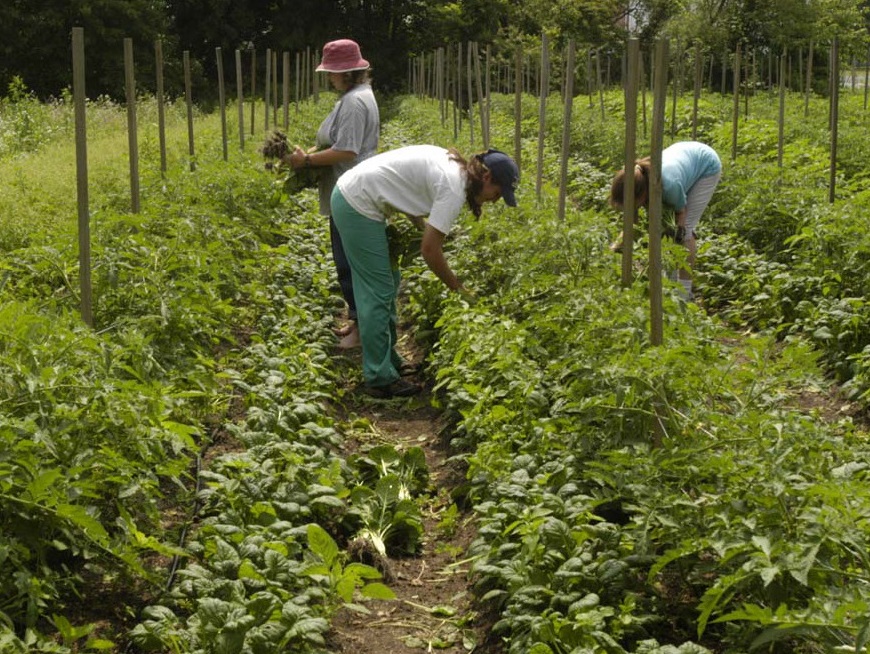Recognizing the Different Kinds Of Horticulture and How They Add to a Much Healthier Way Of Living and Environment
Benefits of Veggie Gardening
Lots of people are significantly acknowledging the myriad benefits of veggie horticulture as an important component of a much healthier way of living. Taking part in veggie horticulture offers numerous physical wellness benefits, consisting of increased physical activity, which enhances cardio health and wellness and promotes total health and fitness. The act of growing, weeding, and harvesting requires movement and can help deal with sedentary behaviors, contributing to weight administration and enhanced muscle tone.
Additionally, growing one's own vegetables significantly boosts dietary quality. Homemade produce is frequently fresher and more nutrient-dense contrasted to store-bought options, as it can be eaten shortly after harvest. This access urges a greater intake of fruits and veggies, which are crucial for protecting against chronic conditions.
Furthermore, veggie gardening fosters mental wellness by offering a therapeutic outlet for tension relief and relaxation. The act of tending to plants can be reflective, permitting people to link with nature and escape the pressures of life. The lasting practice of growing one's own food lowers dependence on business farming, adding to ecological conservation and promoting biodiversity. Collectively, these benefits emphasize the value of veggie gardening as a cornerstone of a healthier way of living.
Exploring Blossom Horticulture

In addition to visual benefits, blossom horticulture supports neighborhood environments. Several flowering plants bring in pollinators, such as and butterflies, which are critical for maintaining biodiversity. The existence of varied plants can additionally boost dirt health and wellness, as numerous plants contribute to vitamins and mineral biking and boost soil framework.
Furthermore, flowers can play a considerable function in promoting lasting methods. Numerous gardeners go with native or drought-resistant types, which need much less water and minimal chemical inputs. This approach not only profits the environment but likewise motivates responsible horticulture routines.
Inevitably, blossom horticulture serves as an essential element of a holistic gardening approach. Gardening. By cultivating elegance and sustaining neighborhood ecosystems, it harmonizes with vegetable gardening and highlights the relevance of nurturing both our physical and mental health via nature
Container Horticulture Advantages
Container gardening offers many benefits that make it an attractive option for both beginner and seasoned gardeners. Among the main advantages is its convenience; containers can click here now be put on patios, terraces, or even inside your home, enabling for gardening precede with limited ground gain access to. This flexibility allows people in urban settings or those with little yards to cultivate plants efficiently.
In addition, container gardening gives improved control over soil quality and moisture degrees. Gardeners can pick particular soil blends to optimize plant health and reduce issues like weeds and parasites. The mobility of containers additionally permits very easy relocation to make best use of sunlight exposure or protect plants from stormy climate.
In addition, container gardens can be visually pleasing, offering a possibility for creative thinking in design. Gardening. They can function as ornamental aspects that boost outdoor or indoor rooms while promoting biodiversity by attracting pollinators
Lastly, container horticulture can add to a healthier lifestyle by urging physical task, as it typically includes lifting, growing, and keeping plants. In general, the advantages of container gardening make it an obtainable and satisfying technique for those seeking to boost their lifestyle and environment.
The Rise of Upright Horticulture
As metropolitan rooms end up being increasingly crowded, the pattern of upright gardening has actually removed, allowing individuals to maximize their gardening capacity in minimal areas. This innovative technique involves expanding plants in vertical frameworks, such as wall-mounted planters, trellises, or specialized upright garden systems. The allure of upright gardening exists not only in its reliable usage of space but likewise in its aesthetic contribution to urban settings, changing bare walls right into lush eco-friendly landscapes.
Upright gardens can be set up in homes, porches, and area spaces, supplying a system for growing a selection of plants, including important link herbs, veggies, and decorative flowers. This technique urges biodiversity and can enhance air quality by filtering toxins while promoting a link to nature in largely booming locations. Additionally, upright horticulture offers practical benefits, such as boosted return per square foot, making it an appealing alternative for urban gardeners looking for to grow their own food.

Sustainable Practices in Horticulture
Accepting lasting practices in horticulture is necessary for promoting ecological health and making sure the stability of our natural sources. Sustainable gardening methods concentrate on lowering environmental effect, preserving water, and fostering biodiversity. By carrying out practices such as organic horticulture, gardeners can minimize the usage of synthetic plant foods and chemicals, which can harm regional environments.
Buddy growing is another reliable lasting method, where specific plants are grown with each other to improve development and hinder pests naturally. In addition, using native plants in landscape design supports regional wildlife and pop over to this web-site calls for much less upkeep, as they are naturally adapted to the neighborhood environment and soil conditions.
Water preservation strategies, such as rainwater harvesting and drip irrigation, aid to efficiently handle water sources, thus decreasing waste. Composting natural waste not only improves the dirt but likewise reduces land fill payments, promoting a circular economic situation.
Last but not least, practicing crop rotation and cover chopping improves soil health and reduces the risk of bug problems. By incorporating these sustainable practices, gardeners can produce resistant ecological communities that contribute to a much healthier way of living while securing the atmosphere for future generations.
Verdict

To conclude, the varied techniques of horticulture, consisting of veggie, blossom, container, and vertical gardening, collectively promote a much healthier way of life and boost environmental sustainability. Each kind provides unique advantages, from supplying fresh fruit and vegetables and attracting pollinators to optimizing limited rooms and motivating biodiversity. By fostering sustainable methods, these horticulture approaches not only add to individual well-being yet additionally sustain wider ecological conservation initiatives, eventually lowering reliance on business agriculture and enhancing area resilience.